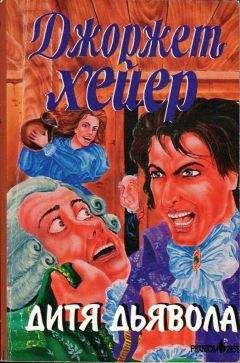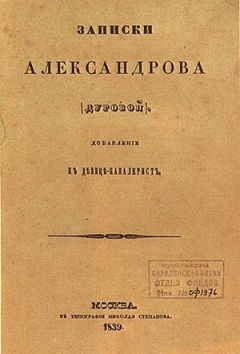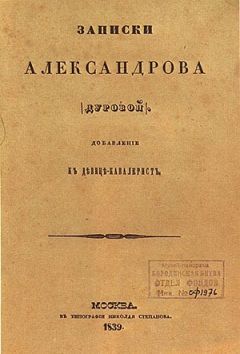Peter Carey - Oscar and Lucinda
'One more for dinner, Mrs Millar," he said. He could not help himself. He smirked.
'He has his own," she said, "at home."
'He shall have his own, Mrs Millar," shouted Hugh Stratton, but joyously, recklessly. "He shall have his own with us. The oblong napkin ring shall be his."
She would not normally have let that pass-calling a ring an oblong,
111 she was confused by his mood. She leaned forward, pretending to examine the boy, but really trying to smell her employer's breath.
It was the smell of custard, however, that intervened and, without excusing herself, she withdrew and slammed the window shut.
40
13 Raisins
This was the second time in his life he had seen raisins. He removed them from what they claimed was "shepherd's pie." He laid them side by side, along the borders of the dinner plate. The plate was painted with pagan scenes. He began to obscure the images with raisins. It was not calculated. He was in too much distress for calculation.
The first time he had eaten raisins was in that so-called "fruit of Satan"-the Christmas pudding. All the muscles in his narrow chest were tight. He grasped his knife and fork and tried to stop his sense of smell from operating. The air in the vicarage was sour. He had never been anywhere so alien. It seemed there was not a thing his hand might brush against that was not sticky with damp. He had been taken to see the view and his hand had accidentally touched the antimacassar on the big maroon couch. The damp made it feel like a dead thing. He snatched his hand away, repulsed. He pulled a face. This was noticed. He blushed bright red while his hands burrowed into the dry-breadcrumb corners of his jacket pocket.
But the nest-smell of the Strattons' house was worse than its damp. It was like a gloved hand pressing your nose into the pages of a musty book. When he entered the room the smell had risen and settled on him like aphids on a rose bush. Books, papers, newspapers, leaned and tottered all around him, not always on shelves, either, sometimes like towers built straight upwards from the floor.
The three of them sat down in chairs and faced the yellow evening light. Oscar felt himself choking on regret and melancholy.
He imagined this room must be the Anglicans' drawing room. No one else in Hennacombe had a drawing room. But then, from the corner of his eye (he could not devote his whole attention 41
Oscar and Lucinda
for he was being interrogated about the health of his father's poultry) he saw the Anglican servant at the big reading table. She was removing newspapers and periodicals and stacking them on top of the paper towers which lined the walls. She thrust others into cupboards which lookedexcept that there was paper where there should be linen-like receptacles for soiled bedclothes. When the table was clear she put a tablecloth on it and began to lay it with cutlery. When they had learned all they could about Theophilus's cockerels, Mr and Mrs Stratton placed him at the head of the table and sat on either side of him. This seemed wrong to him, but almost everything was wrong. There was not sufficient light to make out the oriental deities (for that was how he misunderstood the willow pattern) and, more particularly, the so-called shepherd's pie which seemed like a thick layer of potato with a thin sauce underneath. It had a most peculiar taste-curry-but never having tasted curry he did not know it.
It also contained raisins. He did not know what this signified, but in spite of the Christmas pudding that had led him here, the raisins felt wrong to him. You do not stop being one of the Plymouth Brethren in five minutes. He placed the raisins across the pagans' faces. It was important that he eat everything on his plate, that much was made clear to him. When he had finished everything but the raisins, Mrs Stratton leaned across and put another large spoonful on his plate.
"Thank you," he said. He wished he had never come here.
'They are only raisins," said Mrs Stratton, beaming at him through the gloom.
"Only raisins!" snorted Mr Stratton. "At four pence the pound and only."
"Yes, my darling," said Mrs Stratton whose father had sent the raisins (finest Elemes) together with a whole tea-chest full of other items he classed as "necessaries," on the train from Oxford.
"He is probably unfamiliar with them. Are you familiar with raisins?"
"Oh, yes," said Oscar. "Yes, I am." He was pleased to have such a simple reason for not eating raisins. He begged her silently to remove the plate from him. He sipped his tea. He smiled painfully at Mr Stratton who also tried to show good will.
Mr Stratton was tense. He clicked his fork against his empty plate and took a sip of what Oscar realized must be "drink."
42
Raisins
"Have you ever seen an orange?" Mrs Stratton asked. She had a pretty face, Oscar thought, with large soft lips and pale, gentle, blinking eyes, but everything about her was bigger than it should have been. "Yes," he said.
"Jolly good!" she said, and leaned back, folding her hands in her lap as if oranges were why he was there. He ate more of the nasty food. -'-…•
He thought: "They are Thy servants, Lord." It would appear that neither of the Strattons knew what to talk to him about. Mr Stratton tapped his plate with his fork and had more of his "drink." Mrs Stratton asked him about various fruit and then described for him a little church in Torquay which was being restored by some followers of Dr Pusey. There were to be a number of altars in the church apart from the high altar. Each altar was to have its own dresser and wardrobe in its sacristy. She asked Oscar what his view was on this subject.
"I do not know, ma'am," the boy said in misery. He knew an altar was a place where heathen sacrifice was made. It was all he knew about the term. He knew he must eat his raisins, otherwise his plate would not be taken from him. They were waiting for him to eat the raisins. The raisins had become a symbol of a Christmas pudding. He knew he should eat them. He could not bring himself to do it.
"So you draw the line at altars," Mrs Stratton suggested. "Well, I don't know-Hugh, I really don't-don't know that it is incorrect to do so, for really there is so much that we have accepted unthinkingly, and if you will call it a communion table instead, I, for one, will not call you a fanatic."
The boy moved a raisin sideways on the rim on his plate. He looked so very unhappy. Mrs Stratton smiled. "Really, you know," she said, "it is a nice distinction. Don't you think so, Hugh?" And having begun her speech so confidently, she now ended on a breathless and rather supplicatory note, bowing her head. Mr Stratton suddenly took Oscar's raisins. He speared them, one, two, etc., with his fork. He did not speak until he had finished eating them.
"Do you think your pater will come rushing around here?" He stared at Oscar belligerently. 43
Oscar and Lucinda
Oscar could not hold his gaze. He was not comforted when Mrs Stratton patted his hand."
"Threatening me?" asked Mr Stratton.
Until this moment Oscar had not thought about the immediate future at all. He had his mind on eternity. He had thought merely to do that which was unthinkable. Had he permitted himself to think about his father's actions he would never have had the will to climb the fence into the Anglican garden. But now, imagining his father arriving here, angry, threatening Mr Stratton, his heart lightened.
"Yes," he said, "I expect so." And when he saw the effect of this on Mr Stratton, he felt suddenly very powerful. He was the object of his papa's care and love. Of course his papa would come. He was only a boy and the matter would be taken from his hands.
He smiled at Mrs Stratton, even though he knew that a smile was out of keeping with the seriousness of the question.
"Threats will do his cause no good," said Mr Stratton. He picked up the bell and shook it. He was, it seemed, impatient that Oscar's plate should be removed by Mrs Millar. He topped up his
"drink." "You can tell him that from me."
"You thought to stay here?" said Mrs Stratton, her eyes suddenly filled with alarm, looking from Oscar to her husband and back again. "Hugh?"
Mr Stratton, quite without warning, grinned at her. Mrs Stratton chose to attribute this grin to sherry.
"Yes, ma'am," said Oscar.
"But what will your poor father do?" said Mrs Stratton. "Think of the terrible pain you will cause him, to know his son is here with us, not half a dozen chains away." Oscar's eyes were brimful of tears. He scratched his head. He looked around the room (a little wildly, Mrs Stratton thought).
"I know, ma'am. He will be very sad."
Mrs Stratton heard the West Country accent where the Baptist boys had heard only London. She thought, not for the first time, how expressive it was. When Oscar said "sad" she felt an immediate response, as if to a reed played in a minor key.
"Yes," she said, "most sad."
"I know, ma'am, I know, but he is in error, you see."
"But still you will go home to him," she said, but looking at her husband whose intentions she had not divined. She expected to see his face twisted in anxiety about this matter. Money would be a trouble
44
Raisins
for him, that most of all. She was surprised therefore to see his grin transmogrified into a beneficent smile.
"But still," said Mrs Stratton, continuing to look at her husband. "Still you shall go home to him." She added: "Hugh?"
"Oh, no," said Oscar, and he banged his hand upon his knee in an agony of agitation. Beneath the banging hand, his knee rose and fell, his foot drumming the Turkoman which made Hugh Stratton-in spite of his triumph-think about the rot in the floor joists.
"I cannot," said Oscar, still not crying, but the face so frail, so white, pulled into furrow lines by the clench of the fine little jaw. "No matter how I yearn to."
"But surely," she said, "surely your father loves you?"
"Yes, yes, most dreadfully." The tears had come now, but the boy had not lost control. Mrs Stratton extended her napkin a little and then, not having the offer accepted, withdrew it. She extended a hand to his shaking shoulder but did not feel she had a call to be intimate. He looked alien to her now, like a praying mantis-those long thin limbs shaking with agitation, the raw scratched hands wiping the triangular face. She thought this and still felt great compassion.
"I also love him," said Oscar, with some effort.
The gooseberries and custard were then brought in by Mrs Millar who was surprised to see Mr Stratton serve the boy himself. He doled out excessive quantities of custard. It was not like him to be so generous towards a guest. Mrs Stratton also observed this custard-ladling with interest.
"I could not otherwise."
"Otherwise?" said Mrs Stratton. "Please have sugar if you wish."
"Otherwise than to love him." He accepted the very small handkerchief which Mrs Stratton gave him. He had never seen anything like it; it had fragile lace around its edges. He blew his nose thoroughly and judged the lace a poor material for such a task. "But the dispute is not personal so much," he did not know what to do with the handkerchief ("Keep it, keep it," said Mrs Stratton),
"not so much personal as theological. You see," he said, "he is not saved."
"What a remarkable boy you are," said Mrs Stratton.
Oscar, in spite of his agony, felt pleased to accept this compliment and he tucked it away carefully just as he now tucked away this hard warm ball of wet handkerchief into the depth of his pocket. He was a remarkable boy.
45
Oscar and Lucinda
"But, Oliver," said Mrs Stratton, "we cannot steal you from your father, even if we wished."
"It is not Oliver," said Mr Stratton (rather smugly, thought Mrs Stratton).
"What is it, then?"
"It is Oscar," said Mr Stratton.
"Oscar?",
"Yes."
"What an extraordinary name," said Mrs Stratton.
"I am named after an old friend of my father's."
"Was he a foreigner?" asked Mrs Stratton, but her mind was not on her interrogation. Her husband had unsettled her. She did not understand his face. It bore a calm and powerful look it had not shown for years. He was very still, and this stillness was perhaps the source of his power. In any case it was most unusual.
"He was English, ma'am. It was he who lifted the scales from my papa's eyes." Mrs Stratton had lost interest in Oscar's namesake. She addressed her husband directly on another more urgent matter, not worrying that what she had to say was of a private nature.
"Hugh, the cost." °''
"The boy is called."
"In what sense, Hugh?"
"He is called to Holy Orders," said Hugh Stratton. "He must go to Oriel. I am to coach him for his Articles."
Mrs Stratton pressed her hand against her bosom, not lightly, but hard, to press her heart into stillness. "You have had three glasses," she said.
"Quite right," said Mr Stratton.
'Tomorrow we might talk about it properly," said Mrs Stratton, cocking her head on one side and looking at her husband.
"Quite so," said the Reverend Mr Stratton, rising from his dining chair. He was a little unsteady at first and then he appeared, as he stretched himself, to be of a springier and more athletic type than previously. He flicked his hair back off his forehead. "I think," he swung his arms backwards and forwards, expanding his chest, "that the best plan would be for Oscar to go to bed."
Mrs Stratton looked at her husband's smile. It was lovely, and rather boyish, as if he held roses behind his back, or if not roses, something rarer, some genus hitherto unseen in this part of the country.
46
14 Trials
Men and women with lanterns crossed fields sown with winter oats. Sleepy children were raised from bed to pray by cold hearths. The three Groucher men, Timothy, Cyrus and Peter, came to Theophilus and offered to take the boy back by force. They were big men with barrel chests, arms like blacksmiths'; they carried big wooden staves which they thumped on the floor to punctuate their conversation.
Mrs Williams silently sided with the Croucher brothers. She would have paddled his backside with a hairbrush and had him in his bed before the hour was up. But her employer sent the Crouchers away asking "only" that they give up their precious sleep for prayer. Mrs Williams was tired. She wished to sleep. Her employer seemed to expect her to pray beside him. It was a hard floor and no prayer mats, not even the piece of felt she used when scrubbing. Her master prayed loudly. He prayed self-importantly. He prayed as if he were the centre of the universe, as if the only reason the son had run away was so that God could punish the father. He begged God to punish him in some other way. He begged him loudly, continually, but Mrs Williams thought he sounded like a duke talking to a king and not the "poor sinner" he claimed to be. Mrs Williams was fifty-five years old, too old for this sort of nonsense. If she had been God she would have given him a thwack across the earhole and sent him to bed. At fifteen minutes past eleven, the two Anglicans came, bringing red mud and the smell of the taproom into the little limestone cottage. She was permitted to get up from her knees then. She made them tea, but they did not stay long enough to drink it. She was required for more praying, and then she was not-Mr Hopkins rushed out of the house without a lantern. She sat and waited at the kitchen table and after five or ten minutes the wind



